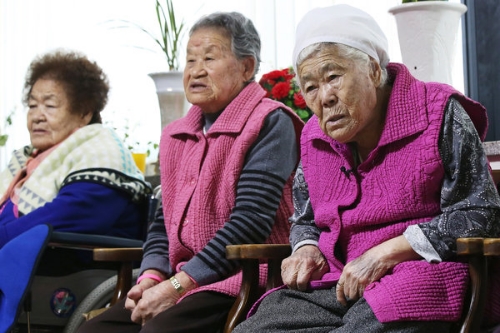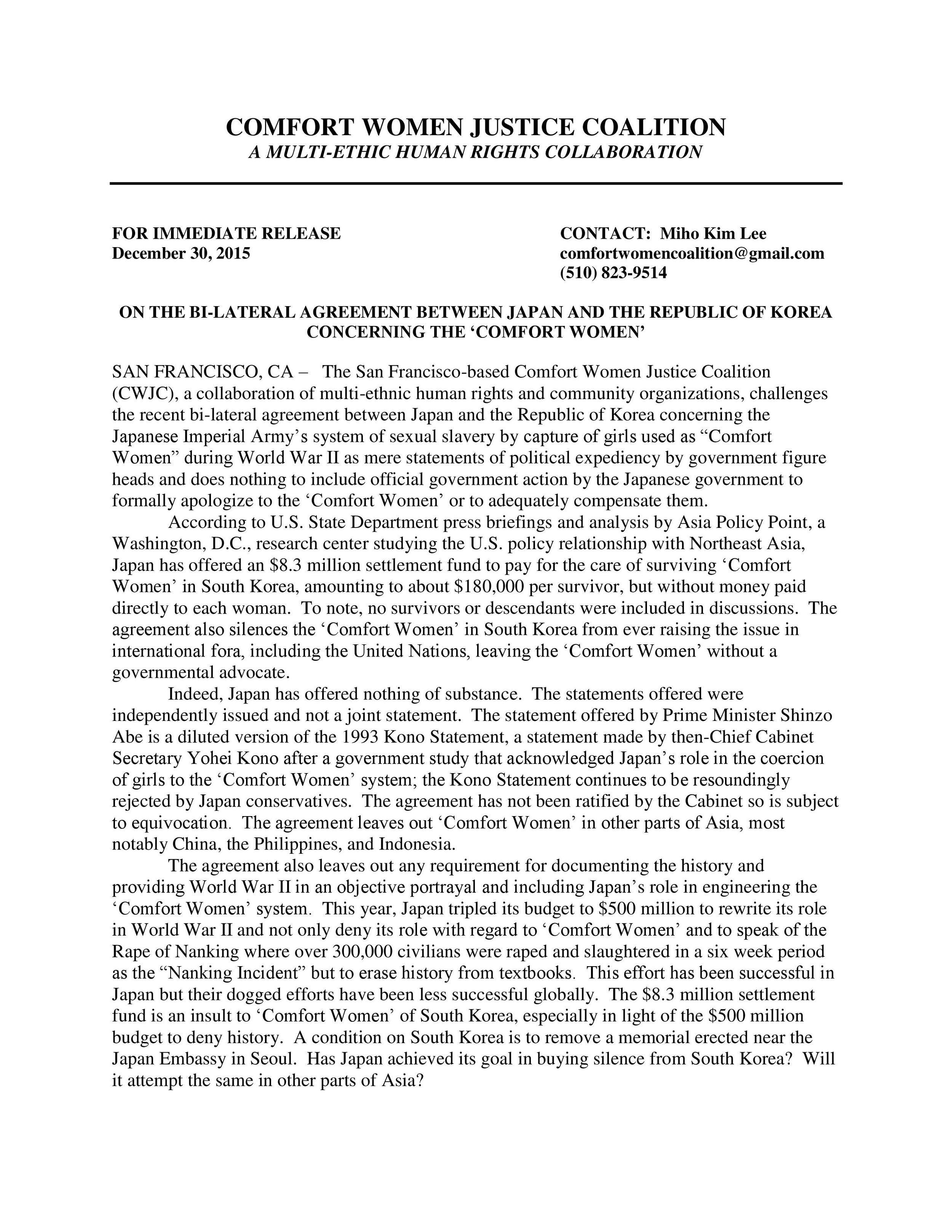Image courtesy of New York Times.
Editors' Note: Read Official statement of the COMFORT WOMEN JUSTICE COALITION, a multi-ethnic human rights collaboration:
Recently, hundreds of South Korean protesters joined two surviving comfort women to denounce the agreement. The remaining survivors were not consulted by South Korean officials as they brokered an agreement with Japan. It is still unclear whether the comfort women will actually receive the compensation money. Read more here and here
More than 70 years after the end of World War II, South Korea and Japan reached a landmark agreement to resolve their dispute over Korean women who were forced to serve as sex slaves for Japan’s Imperial Army.
The agreement, in which Japan made an apology and promised an $8.3 million payment, was intended to remove one of the most intractable logjams in relations between South Korea and Japan, both crucial allies to the United States. The so-called comfort women have been the most painful legacy of Japan’s colonial rule of Korea, which lasted from 1910 until Japan’s World War II defeat in 1945.
The Japanese and South Korean foreign ministers, announcing the agreement in Seoul, said each side considered it a “final and irrevocable resolution” of the issue. The deal won praise from the governing party of President Park Geun-hye of South Korea but was immediately criticized as insufficient by some of the surviving former sex slaves as well as opposition politicians in South Korea, where anti-Japanese sentiments run deep.
Some critics are apprehensive about this new agreement since it calls for South Korea to remove a tribute statue commemorating the comfort women in front of the Japanese embassy. Critics hold that the comfort women should be remembered and sealed in Japanese history for genuine healing to occur. The 70 former comfort women in the Philippines, China, Indonesia, and North Korea, have yet to receive any financial compensation nor a formal apology from the Japanese government.
Read the whole story here.
News story from The New York Times.
Op Ed from The Seattle Times
News story from Reuters


